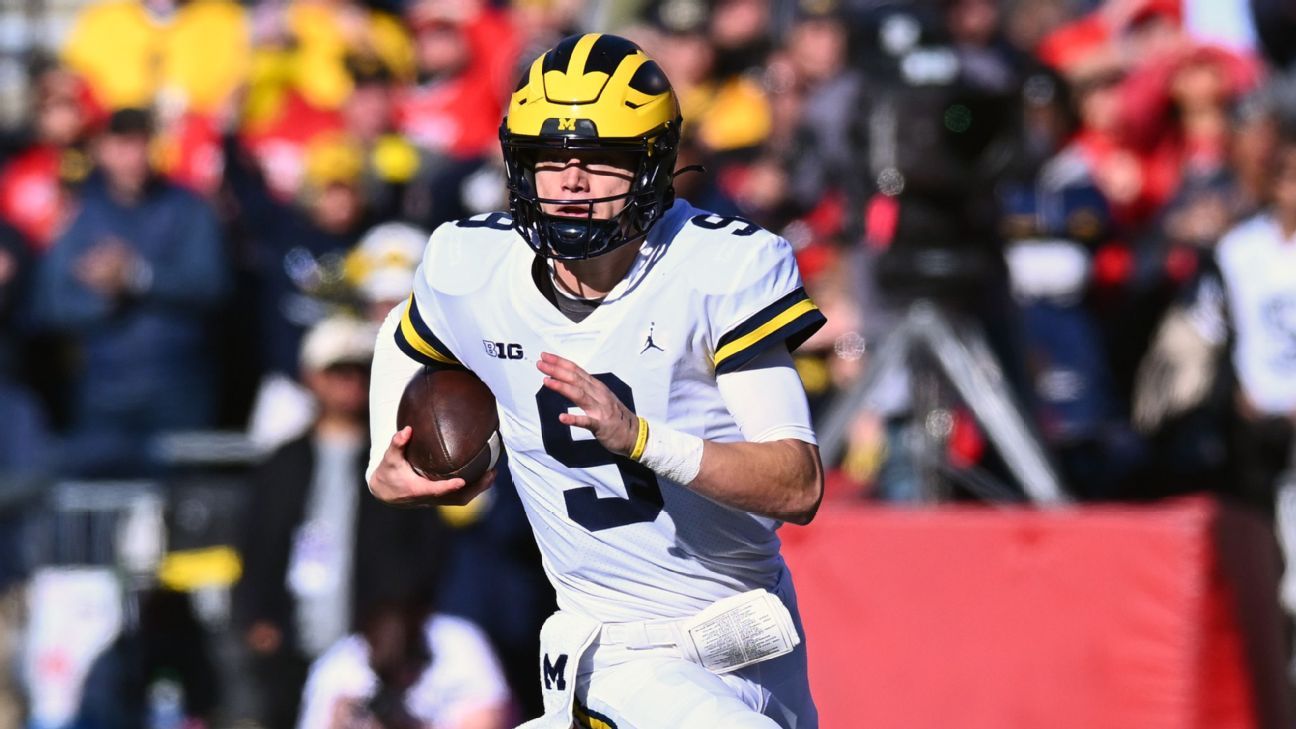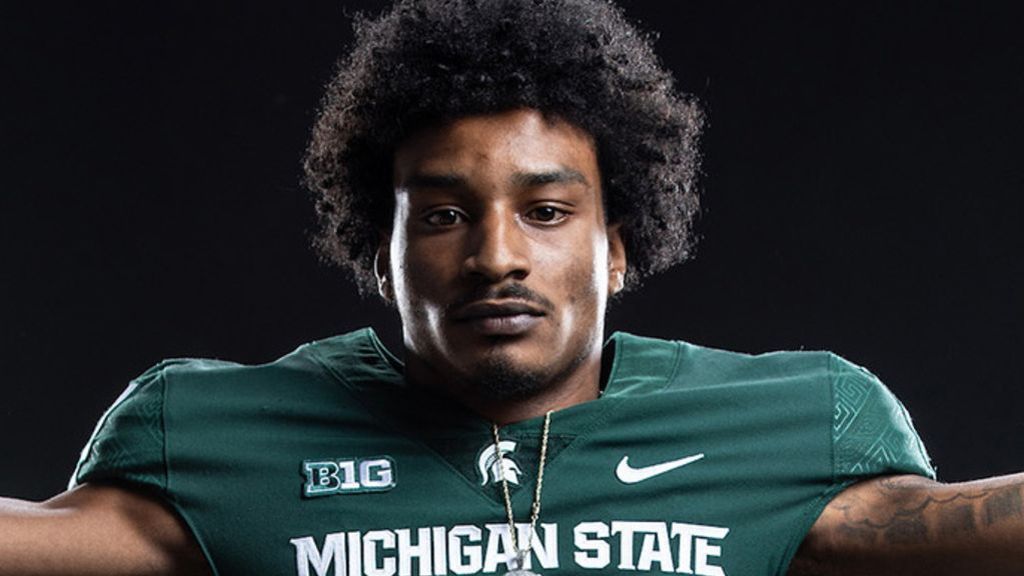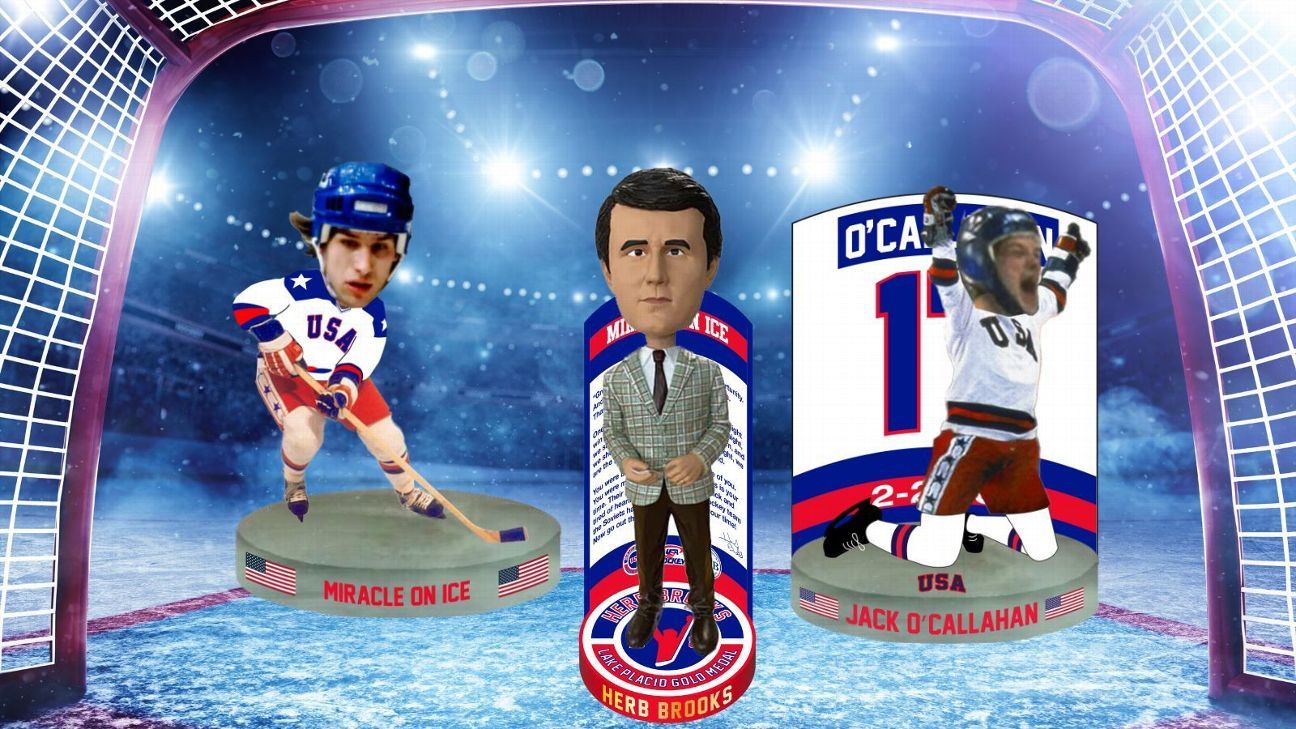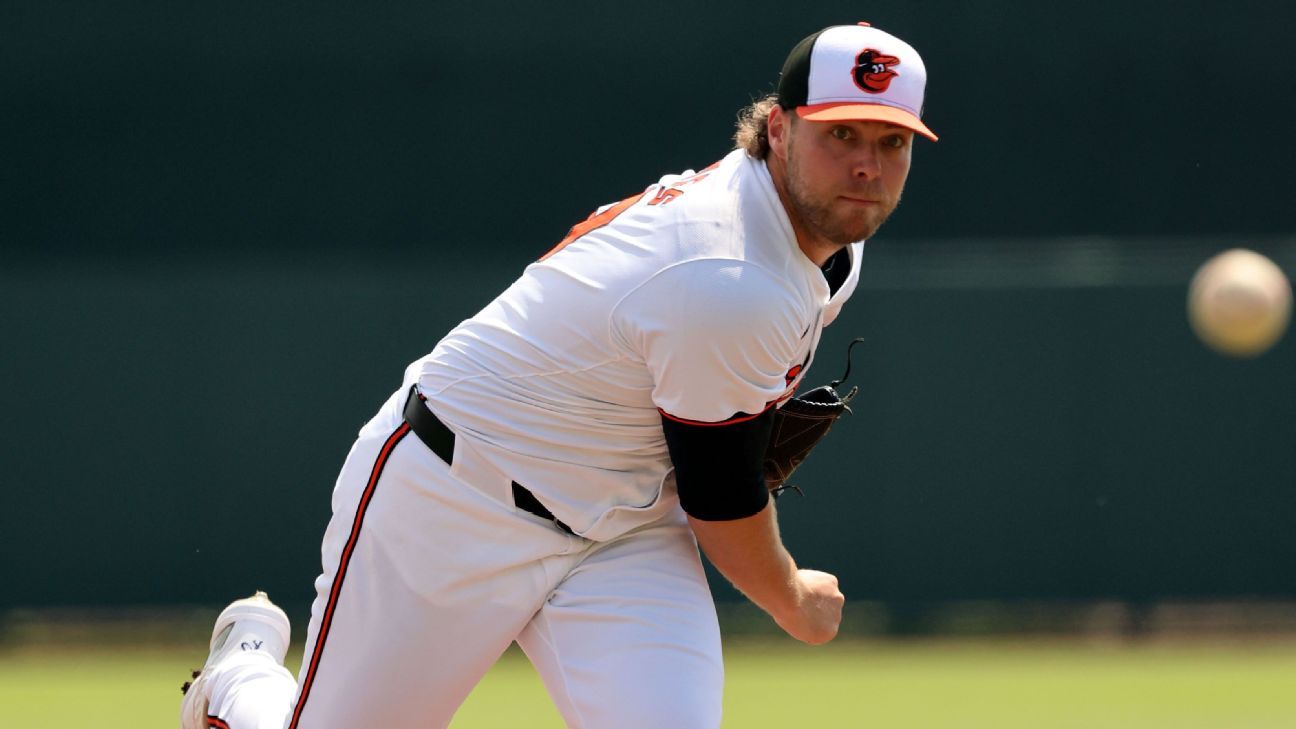ESPN baseball analyst Tim Kurkjian is headed to the Hall of Fame — and we couldn’t be prouder.
We also couldn’t miss the opportunity to express just how much he means to us around here.
So, as Cooperstown calls for our colleague, we wanted to share just a few of our favorite memories from working alongside a legend.
Buster Olney, MLB writer: I met Tim about 30 years ago in Yuma, Arizona, in the most unlikely game of 21 — Tim (whose listed height in your game program is 5-foot-5) vs. fellow Padres beat writer John Schlegel (a legit 6-7) vs. me (5-7 3/4, allegedly). In that time, we’ve spent hours together in studios, on ballfields, in clubhouses, in arguments about whether Mariano Rivera belongs on the Yankees’ Mount Rushmore (I say yes; Tim is wrong), in cabs to and from airports, on flights. I can address all the legends of my friend and colleague, whose first name recently changed — to Hall of Famer Tim Kurkjian.
About his temper on the basketball court: You’ve seen the Incredible Hulk, yes? When anger turns Bruce Banner’s eyes green and he transforms into a monster? Well, this is what can happen to Hall of Famer Tim, who can turn from the nicest human being you’ve ever met to Mr. Hyde by somebody’s bad etiquette in a pickup game. Hit him with a really cheap foul call or a dirty undercut at your own peril. And yes, he’s really good. As far as we know, he was the only sportswriter invited to participate in Cal Ripken’s full-court games. The Iron Man does not suffer fools or basketball weakness.
About the Hall of Famer’s inability to stay warm: It’s bizarre, but the man has been seen wearing a wool overcoat in July. The only conceivable explanation is that his large heart must draw heat from the rest of his body.
About his anxiety about being on time: You know how your Uncle Joe and Aunt Betty head to the airport four hours before their flight? Well, he would already be at the airport two hours before they arrived. He once was scheduled to be part of an early-season 1 p.m. broadcast from Yankee Stadium, and because of concern about possible snow and a big crowd, he arrived at the parking garage at 4 a.m. — and did a podcast taping at 6 a.m. As it turned out, the game was postponed.
About his performance anxiety: It’s persistent. About 15 minutes before every show, you can find Tim wandering in the vicinity of whatever broadcast booth or set that he is supposed to be part of, talking to himself, going over lines, rehearsing thoughts, getting settled in his brain, sometimes with nearby players wondering whether he was OK. “Yeah, he’s just practicing,” I’ve told more than a few, adding that Tony Gwynn, Jose Altuve and other greats also practiced a lot.
About his humility: More than once, Hall of Famer Tim has called with a simple question — “What is it I’m missing about this situation?” He’s always aware there may well be a lot he doesn’t know.
About his oral history of anecdotes: It is absurd, and a little bit frightening. You can pick the name of almost any semi-prominent player in baseball history — like picking a single card out of 10-deck set of playing cards — and he’ll have a story, well-paced, detailed, and with a punctuating sentence that will you make you smile, at the very least, or, at most, laugh out loud.
About his Lex Luthor: It is Rick Sutcliffe, and nobody is a close second. I’ve never seen one grown man emotionally hound another man in the way that Sut goes after Timmy, mostly about his height, and I guarantee you nobody in our business was happier for Tim’s election today than Rick Sutcliffe.
About his humanity: What separates Tim in our business is really, really simple, a trait also possessed by Peter Gammons and Jayson Stark, two of our former colleagues at ESPN: Tim looks for the good in people. He’s well aware of the complexities of baseball and those who play it, but he looks for the good, for the hope and wonder in every game, in each day, in each person.
About how beloved he is in the industry: This is true, all true. Baseball might be shut down, but the news about Tim is a bright light in our business.
Jeff Passan, MLB writer: It’s 2019, my first year at ESPN, and I’m about to make my first appearance on Baseball Tonight, a show I’ve watched since I was 8. Nervous does not begin to explain what I felt. I was going to fumble over my words. Say something stupid. Get a fact wrong. The studio lights were bright, and this was going to be a disaster, and … suddenly a hand touched my left shoulder.
“This is going to be great,” Tim Kurkjian said.
Perhaps you’ve heard that Tim is the greatest guy. That actually undersells him. In that moment — in any moment — someone as accomplished as Tim could very easily keep to himself and nobody would begrudge him for it. Instead, Tim is habitually generous with his time, his knowledge, his words of wisdom. When his hand hit my shoulder, it was like a muscle relaxant. “Just follow Ravy,” he said, motioning to Karl Ravech, our indefatigable anchor who did, just as Tim suggested he would, lead us exactly where we needed to go.
I probably screwed up a few times that day, but I don’t remember how. All I recall is the relentless positivity of Tim Kurkjian: elite teammate, great friend and, finally, most deserving Hall of Famer.
Jesse Rogers, MLB writer: Tim has always been kind and helpful in any and all ways as a colleague at ESPN. He might be the best known and liked baseball personality in the country as well. During this year’s World Series, he was having dinner in Houston at a table next to the great Reggie Jackson’s table. The tables were close to each other but Reggie and Tim were two seats apart — someone was between them. As Tim went on the business of ordering his meal, Reggie asked to switch seats with the person next to Kurkjian. He wanted to talk with Tim. And the conversation commenced. About the old days, the current World Series and everything in between. It was fascinating. But what I’ll always remember is Mr. October asked to switch seats to sit next to Tim, not the other way around. Now that’s someone with a real presence in our game.
David Schoenfield, MLB writer: Everyone knows how much Tim loves baseball. Heck, his second book was titled “Is This a Great Game, or What?” and was full of Tim’s wonderful stories about his first 25 years covering baseball. But I really learned how much Tim loved the sport more than two decades ago, when I was a baseball editor for ESPN.com. We had a softball league for ESPN employees and played the games in the late morning, since so many ESPN workers were on the night shift. Tim must have been in town for Baseball Tonight and having heard stories about his prowess on the basketball court, I invited him to come out and play softball with us. I figured we could use a good ringer. Tim declined to play, but he showed up to watch the game. I’m sure if he remembered this story he would make a self-deprecating joke about how pathetic it was that he had nothing else to do. Maybe so; but I look at it as a man who couldn’t pass up the opportunity to see a game, any game — even what was undoubtedly a very unexciting game of softball.
Eduardo Perez, MLB analyst: He is our Tim Kurkjian. The ultimate teammate from Day 1. Always extending a hand to make us all better. Always providing sincere advice and with a knack for getting the story without cutting corners. Even if we have to be at the ballpark at 3 p.m., Tim is there at 1 because he believes that’s when you can get the best stories out of the players. And better yet, even when there is a “lockout”, Tim shows he has a way of getting the story.
Joon Lee, MLB writer: When I started at ESPN, I had a lot of doubts about whether I even deserved to be on a team full of so many writers I grew up reading. Before the pandemic changed our world, Tim came up to me at Red Sox spring training and greeted me with the warmest of welcomes. As we walked around the facility, he told me stories about his career, how he transitioned from newspaper writing to television and was able to maintain his passion for his work over such a decorated career.
My favorite Tim Kurkjian story came at the 2021 American League Wild-Card Game. Bucky Dent was at Fenway Park getting interviewed by ESPN shows about his home run in 1978 that gave the Yankees the lead in the AL East division tiebreaker game. While everyone wanted to know about Dent’s most famous career moment, Tim instead talked to him about his time with the Texas Rangers in 1982 and 1983. As I stood alongside the set, Tim came up to me and started recalling every detail of the conversation he had with Bucky about the trials and tribulations of those Rangers teams with the enthusiasm of a kid who had just discovered their passion and love of baseball for the first time.
Watching someone as accomplished as Tim still be this enthusiastic about random, mediocre teams from the ’80s was inspiring. That after all of this time, Tim still loved storytelling and was not jaded by his years of seeing how the sausage gets made in the baseball industry.
This is what makes Tim Kurkjian, Tim Kurkjian.
Scott Van Pelt uses his famous Baltimore accent while speaking with Tim Kurkjian, who cannot contain his laughter.
Doug Glanville, MLB analyst: You forget that Tim is a pretty good athlete (despite what he says) and he truly loves all sports. It has been a joy to work with him over the years. He is the best storyteller. He reminds us of the deep love we have for sport not just in the present but through its history. Our history. A national treasure and this honor is so well deserved.
Matt Marrone, MLB editor: I loathe public speaking, but there have a been a few times I’ve needed to do it over the years at ESPN. Pre-pandemic, it had become my task to address a roomful of baseball scribes and analysts as part of an annual MLB summit. I will do anything to distract from the sound of my own voice — I’ve gone so far as to toss wax packs of baseball cards across the room at people’s heads just to get everyone laughing (and ducking). But the best strategy: Let Tim Kurkjian take over. Often with little to no warning or preparation time, Tim has taken my topics and quickly had the room captivated and cackling. No matter how silly my setup — I’ve created PowerPoint games of Family Feud for the group to play — he not only hits the ground running, but has the perfect anecdote to fit whatever ridiculous backdrop I’ve projected onto the screen behind him. In the pantheon of accomplishments in Tim’s now Hall of Fame career, this, well … of course it doesn’t touch any of those. But maybe it helps shed even the smallest light on his Cooperstown-caliber intangibles.
Peter Lawrence-Riddell, former MLB editor: Talking about all of my favorite things that Tim has done for us over the years would take way too long and take up way too much space. But one project does stand out, for its size, length, impressiveness, and just how well it exemplified what makes Tim great.
It’s the “Baseball Fix” series we ran during the pandemic with a daily story from Tim every day for 100 days.
When the pandemic first started and MLB (and the rest of the sports world) stopped, none of us had any idea what would come next or how long it would be until sports started again. With a big assist from editor Nick Pietruszkiewicz, Tim jumped into something that probably only he could have done, telling daily baseball stories for 100 straight days from March 27, 2020, to July 3, 2020. From what would have been opening day to the 4th of July, Tim told stories, starting with “How do you spell Rob Zastryzny?” on Zastryzny’s birthday and ending with “100 reasons why it’s still OK to love baseball”.
Tim’s love of the game, its history, its personalities, its stories, was on display every day for more than three months. And every day it made me smile a little bit at a time when there wasn’t always a ton to smile about — and I think it made other baseball fans smile, too. And that’s the magic of Tim and his love for baseball — it’s infectious. When you read his stories you read them in his voice, and his love and appreciation of the game is right there on full display.
See what happens when little leaguers join the broadcast booth and go toe-to-toe with Tim Kurkjian.
Nick Pietruszkiewicz, former MLB editor: Sometimes the phone rings before 7 a.m. It’s gone on this way for more than a decade. I look at the caller ID and just smile, because I know what I am about to hear — that voice. Few things make me smile or feel better at the start of a day quite like Tim Kurkjian’s voice on the other end of the phone.
Certain days the call is about a story idea, one he had kicking around in his head that the minute you hear it you just know it is going to be memorable, because, let’s be honest, no one tells a story — on any platform — quite like or better than Tim. Other days it’s a thought — what if we did this or I’d like to take another crack at that last draft — because he cares so much about the work, about getting it right. My favorite calls, though, are the cries for technological help. “Now, Nick, I think I messed up on Twitter.” Of course, he never did, but that doesn’t stop him from worrying about it.
During the dark days of the pandemic, when no sports were being played, together we came up with an idea. The way it was pitched to others was, well, simple — “Story time with Uncle Timmy.” It turned into Tim Kurkjian’s “Baseball Fix”. The stories, like every one he has told in what is now rightfully a Hall of Fame career, are fascinating. “Nick, I think people need to smile right now,” he told me. “I want to tell stories that make them smile.”
I have one hero in this business — it’s Tim Kurkjian. There is not a better storyteller, but more importantly, not a better person. He cares about people — the ones he’s known for decades and the ones he sees on the street or at a restaurant or on a golf course who recognize his voice and just want to say hello.
John Updike wrote of Ted Williams “Gods do not answer letters.” My hero does — to talk about a story, to ask about me and my family, to get help trying to figure out how to use a godforsaken cell phone.




